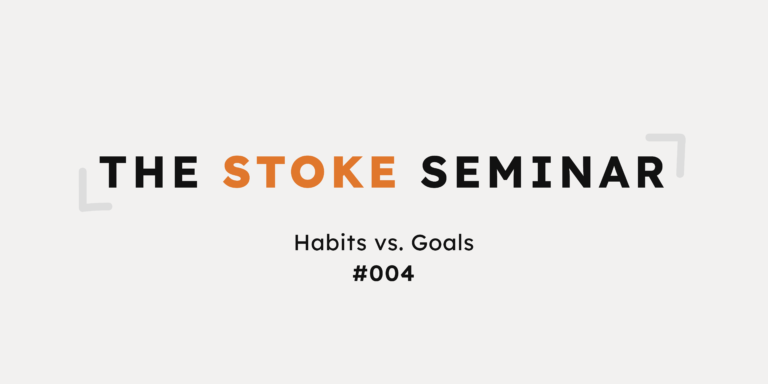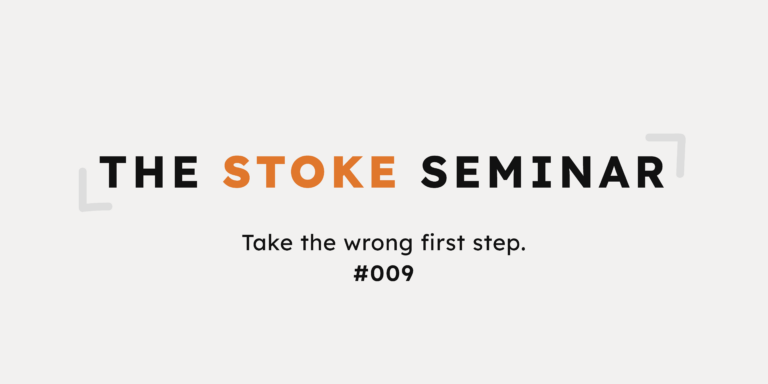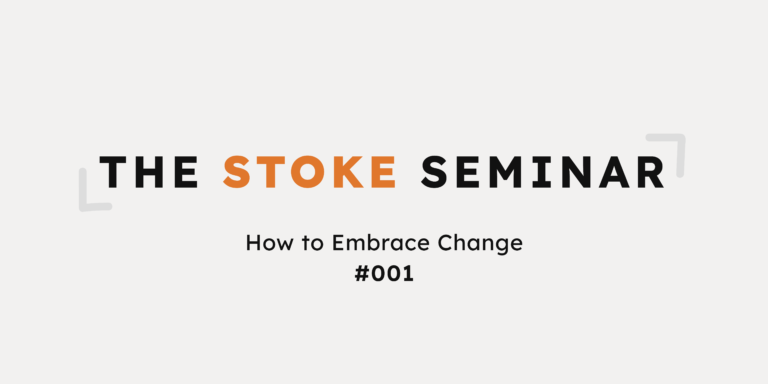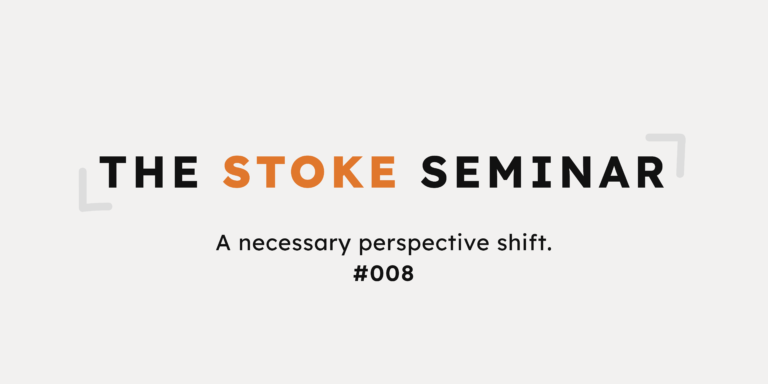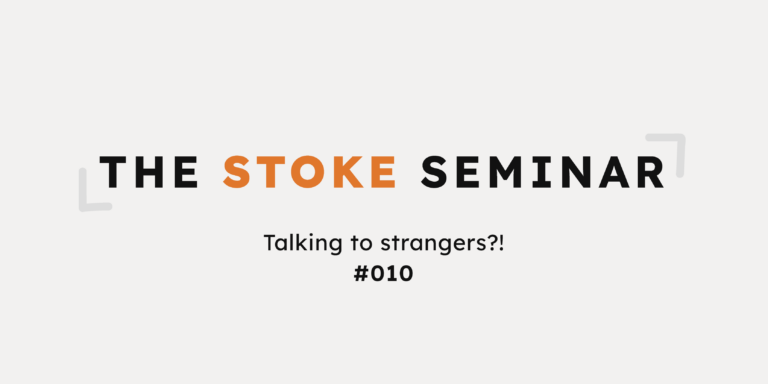The secret tool of creative geniuses
Reminder: My new course, The Genius Journal is in the works! Sign up to be the first to learn more about it.
When you’re feeling stuck, the problem is that you don’t know what to do next.
When you don’t know what to do next, it’s because you’re lacking ideas that will catapult you forward.
And when you’re lacking ideas, it’s because you’re failing to capture the thoughts that prompt your next action.
But to capture these ideas – you need a reliable system to do so.
Let’s dive into the importance of these ideas and how to begin taking action with confidence.
The Common Thread for Creatives
I’m always on the search for connections amongst ideas in my head.
This is called pattern recognition, and it’s a major part of the learning and creative systems in our minds.
Recognizing and noticing these patterns triggers dopamine (and other feel-good chemicals) to flood into our brains.
And whenever this happens, we search for new ways to make it happen again, and again, and again.
Upon listening to various podcasts, reading various books, and watching various videos – there seems to be a common thread amongst successful creatives.
Recognizing this pattern has been beneficial to me in a couple different ways:
- It confirms a personal theory of mine (that I’ll expand on shortly)
- It feels good to notice patterns and discover more evidence supporting this idea
What is this theory, you ask?
What common thread have I noticed among my personal favorite authors, musicians, artists, and creatives?
Geniuses use journaling as a tool in their daily lives.
And although each person may prefer different methods – there’s undeniable proof that writing and documenting your life is beneficial in more ways than expected.
It’s More Than a Diary
When I first began using a notebook to journal, I didn’t think anything of it.
It was simply a way for me to write my thoughts, feelings, and actions in a physical location.
This all began for me in 2013, when I was just 15 years old.
At the time, I just wanted to capture a specific moment in my life.
But after continuing to journal in the months following that first “diary” entry, I realized journaling was so much more than that.
It provided a way for me to vent, to relieve pressure, and to ”talk” without boundaries.
No one was required to hear me out, respond to what I was saying, or give feedback based on my struggles.
And that felt extremely liberating to me.
I could open a notebook, pick up a pen, and write whatever the heck I wanted – for however long my cramped hand could handle it.
What started as an uncomfortable “Dear diary, today I’m deciding to try something new…” turned into a regular routine that has continued to this very day.
And over a decade later – I’m far more interested in this subject than I was as a young teenager.
And that’s because I have now experienced the long-term benefits of it first hand.
I know how impactful journaling is.
I know how much it’s positively affected me.
I now know how to effectively use it as a tool.
And I feel obligated to share this activity with others who I know will benefit from it as much as I have.
Journaling Like a Genius (3 Examples)
This has led me down a rabbit hole of researching the creative methods of influential people.
Upon doing this, I’ve discovered an interesting pattern.
Funnily enough – I’ve stumbled upon these findings without really looking for them.
Most of these discoveries were made when I was casually listening to or reading something that was intriguing to me, and the whole “journaling” aspect was brought up as a side-note.
So just for fun, here’s a quick case study on 3 people who outwardly express the importance of journaling in their personal lives & creative processes:
1) Harry Mack
The most recent discovery comes from the freestyle rap artist, Harry Mack.
In my opinion, Harry is one of the most impressive artists of this generation.
Just in case you haven’t seen one of Harry’s mind-boggling performances circling its way across your social media feed – I’ll give you a brief explanation.
Everything Harry does is completely improvisational. “Off the dome” as he would say. This means that none of his performances are pre-planned.
He typically prompts his audience to give him a few random, challenging words to get started, plays an instrumental track, and begins to rap without skipping a beat.
Harry then weaves the provided words (and much more) into a flawless performance that never fails to leave my (and his spectators) jaw on the floor.
After recently diving into his podcast titled The Flow State, I learned that journaling is a major part of Harry’s creative process.
Not only has it helped him on his personal journey to sobriety – it also contributes to his daily workflow in songwriting, documenting his ideas, and clearing the thoughts in his head.
Harry mentions that he’s been using a form of journaling every day for the past 4+ years.
That’s pretty freakin’ awesome.
And this doesn’t surprise me coming from an artist as talented as he is.
Journaling is powerful – regardless of what you use it for.
2) Sam Altman
Although I don’t know much about Sam personally, I have seen his name repeatedly over the past few months in various creative content.
Sam is the founder of OpenAI (the company behind ChatGPT), and currently has a net worth of $1B.
He is a major force behind the AI movement that is (and will be) majorly impacting the daily lives of nearly everyone.
As you can probably imagine, Sam is always generating new ideas.
And in a recent interview, Sam talks about his personal system for note-taking (with a pocket notebook he always has on hand).
Sam states, “I’m a huge note taker… I go through one of these every 2 or 3 weeks.” [talking about a 100-page spiral-bound notebook]
I wonder how many of his world-shifting ideas were first documented on a little pocket notebook!
3) Tim Ferriss
Another example of someone who is nearing (or already far beyond) the “genius” status would be Tim Ferriss.
Tim is an author, podcaster, and entrepreneur that is best known for his book The 4-Hour Work Week.
Among the many lifestyle habits he shares about is, you guessed it… journaling.
In one of Tim’s articles titled “5 Morning Rituals That Help Me Win the Day,” he shares about his personal favorite journaling techniques.
One of which is called The 5-Minute Journal.
This includes two 5-minute blocks of journaling throughout the day:
- One right away in the morning (I am grateful for…)
- One of them in the evening (3 amazing things that happened today…)
Tim says in a video about the topic:
“[I journal] in the mornings, not for anything intended to be published, but to take the monkey mind and irrational fears, thoughts, worries, unfocused distractions in my head and put them on paper, so that I can get on with my day.”
Another great example of a highly creative, successful person who uses journaling on a daily basis.
It’s no coincidence.
Ideas Are Prompts for Actions (Learn How to Capture Them)
Regardless of how it’s done – documenting your thoughts can have a profound impact on your life.
But not only that, these ideas that you capture have the ability to positively impact others and may just turn into groundbreaking projects that shift the way the entire world works.
Personally, I’ve used journaling to:
- clear brain fog
- document my life and actions
- generate infinite creative ideas
- make more-informed decisions
- develop clarity for career choice(s)
And I will be sharing all of my systems, templates, and tutorials for doing so in my new course called The Genius Journal.
This course will include everything I’ve learned from my 11+ years of journaling.
Whether you’re looking for new ways to find clarity, make big decisions, or achieve personal goals effectively – there will be content to help you solve these problems.
Plus, I will be sharing my methods from 7+ years of generating ideas for creating and sharing online.
I believe every idea is a prompt for action.
And in the course, I’ll teach you how to capture these ideas and expand upon them in longer-form writing sessions – so you can transform your ideas into reality.
Journaling has had a major impact on my life, and I’m stoked to be able to share these discoveries with others.
I’ve always believed in the power of note-taking and writing – but researching how various creative geniuses use journaling in their daily lives confirms that belief even further.
Here’s a link to join the waitlist for The Genius Journal course.
Q: How can you implement a quick journaling session into your week this week? What topic(s) might you benefit from unpacking?
Thanks for reading – have an amazing weekend my friend!
–Eric Pfohl
